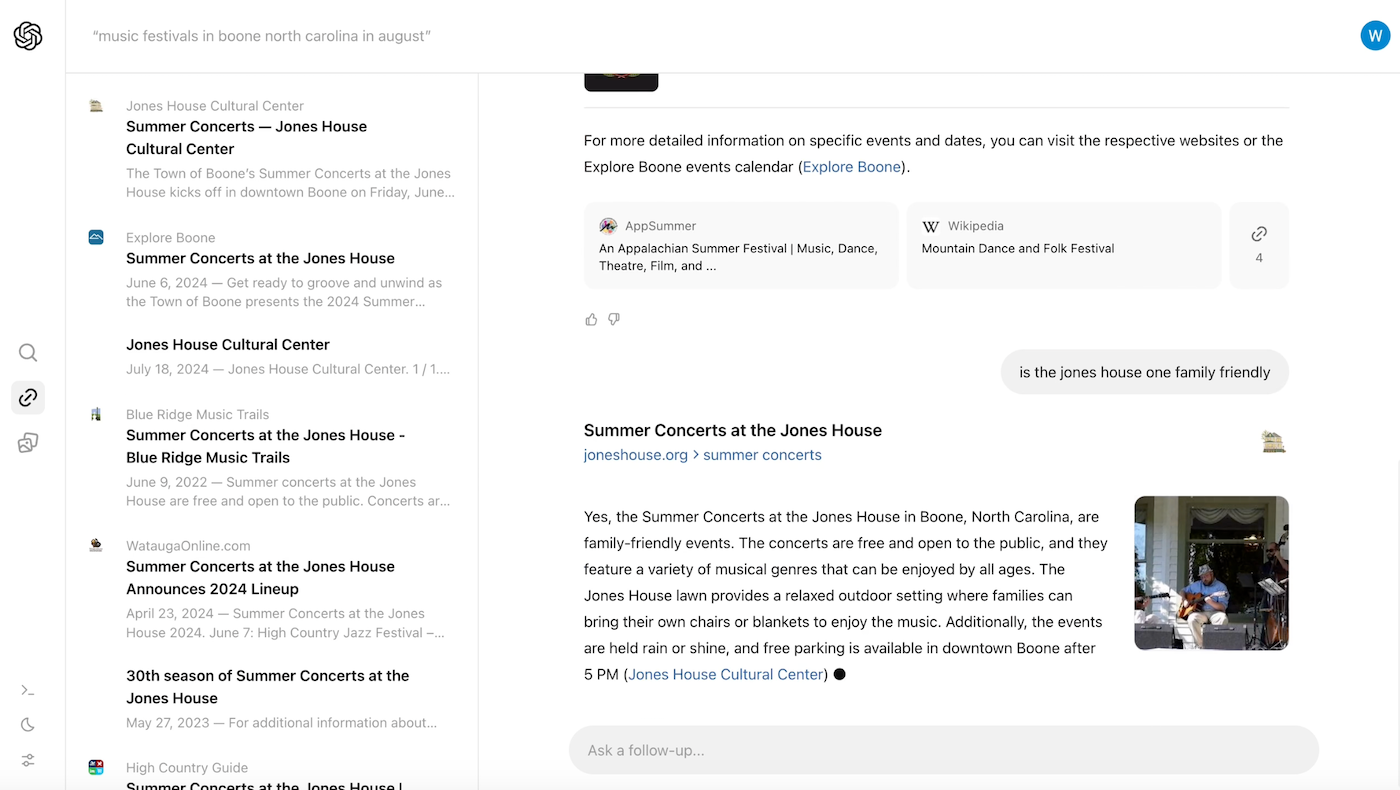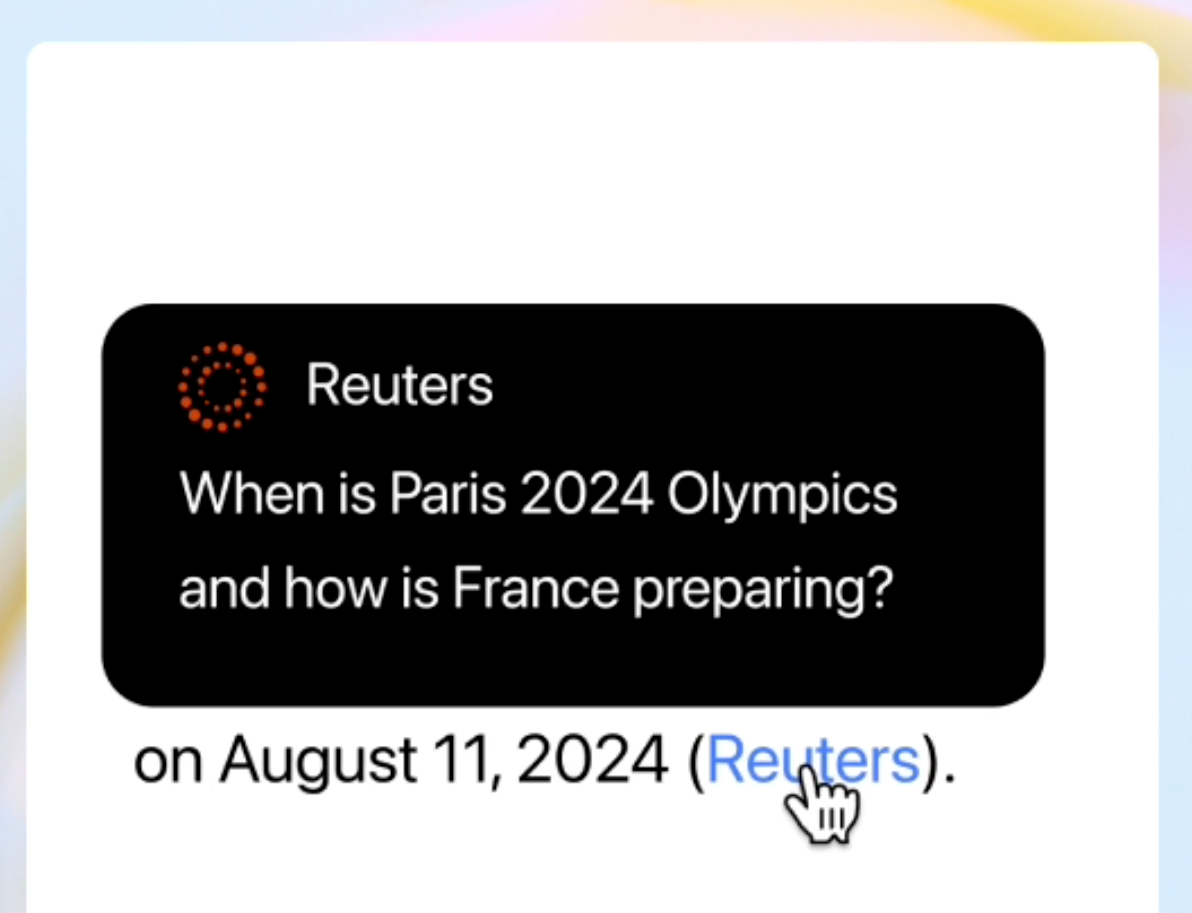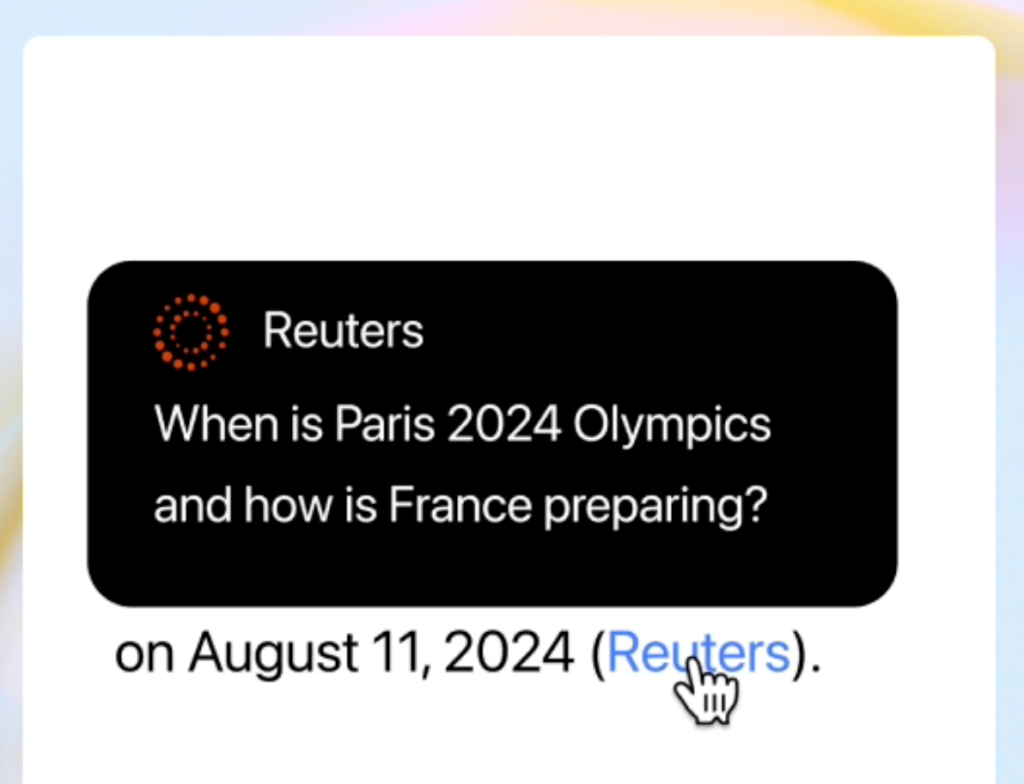OpenAI is set to unveil a prototype search engine replacement to a select group of users and publishers, potentially challenging Google Search. SearchGPT will blend machine-generated content with real-time data sourced from the internet, as detailed in a blog post by OpenAI on July 25.
Interested organizations can sign up for the SearchGPT prototype on the waitlist.
‘Visual answers’ and natural language set SearchGPT apart from Google
OpenAI distinguishes SearchGPT from Google Search Generative Experience in several ways.
Users can inquire further about their search using informal language. For instance, “the jones house one” refers to the festival venue initially mentioned by the user.

Additionally, users will have the option to open a tab displaying direct links to websites or access “visual answers,” such as charts or videos. It remains unclear whether visual answers will be AI-generated, sourced from the web, or a combination of both.
OpenAI has forged partnerships with various media companies, including The Atlantic and News Corp, and has assured publishers that links to original content will be prominently featured in SearchGPT results.

Google’s stronghold on the competitive landscape for SearchGPT may face challenges
Google has been enhancing Google Search over the years, striving to provide answers and prioritize high-quality search results. The introduction of the AI-powered Search Generative Experience further transformed Google Search by incorporating tailored responses to certain queries. As of July 2023, Google commands 81.95% of the global search engine market share.
Meanwhile, Microsoft introduced Bing Chat and later an improved generative AI response format to its search engine.
The battle is for becoming users’ primary destination on the internet. If SearchGPT can secure a market share as a main search engine, it could compete with established search engines that have recently integrated the generative AI technology for which OpenAI is renowned.
SEE: Meta recently introduced its most advanced AI model, Llama 3.1.
The landscape of search engines is evolving from being content directories by topic to question-and-answer platforms that source information from the web.
“This development could be groundbreaking in the search domain,” remarked Damian Rollison, director of market insights at marketing firm SOCi, in an email to TechRepublic. “ChatGPT stands out as the strongest contender to challenge Google’s dominance in search, and features like ‘visual answers’ seem innovative and potentially disruptive. However, in the realm of search, Google’s established position after 26 years is a formidable advantage for them.”
Another significant player in this arena is Perplexity AI, positioning itself as an “AI-powered answer engine.” Perplexity AI is compatible with browsers and apps, drawing on current information unlike ChatGPT.


